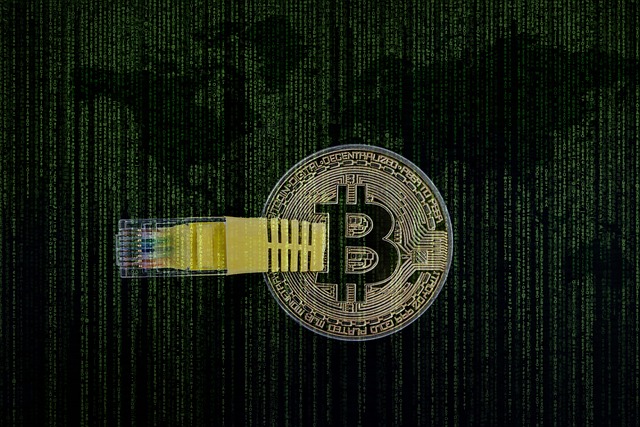USD Coin’s Role in Decentralized Finance and Global Payments
USD Coin, a stablecoin pegged to the US dollar, has been making waves in the world of decentralized finance (DeFi) and global payments. In this article, we’ll delve into the role of USD Coin in these spaces and explore its potential impact on the future of finance.
In the realm of DeFi, USD Coin serves as a reliable store of value and medium of exchange, allowing users to easily access financial services without the need for traditional intermediaries. Its stable value and low volatility make it an attractive option for investors looking to diversify their portfolios.
One of the key benefits of USD Coin is its ability to facilitate cross-border payments. As a digital asset tied to the US dollar, USD Coin can be easily transferred and exchanged with other cryptocurrencies, making it an ideal solution for businesses and individuals looking to expand their global reach.
In addition to its DeFi applications, USD Coin also has a significant role to play in traditional finance. Its stable value makes it an attractive option for investors looking to invest in emerging markets or currencies with high volatility.
Another key aspect of USD Coin’s role in decentralized finance and global payments is its use in supply chain finance. By providing a secure and transparent way to manage payment flows, USD Coin can help reduce the risk of counterparty default and increase the efficiency of supply chains.
The growth of DeFi and global payments has been fueled by the increasing adoption of blockchain technology and digital assets. As this space continues to evolve, it’s likely that USD Coin will play an even more significant role in shaping the future of finance.
However, there are also challenges associated with the use of stablecoins like USD Coin in DeFi and global payments. One of the main concerns is the risk of regulatory capture, where governments and financial institutions may exert too much control over the market, stifling innovation and limiting access to financial services for underserved communities.
Another challenge is the potential for volatility, which can impact the stability of the entire system. As with any asset class, there is always a risk that USD Coin’s value could fluctuate, potentially impacting its use case in DeFi and global payments.
In conclusion, USD Coin has a significant role to play in decentralized finance and global payments. Its stable value, low volatility, and ability to facilitate cross-border payments make it an attractive option for investors, businesses, and individuals looking to expand their global reach.
Steps to Get Started with USD Coin
- Choose a reputable exchange: Find a reliable exchange that supports USD Coin, such as Binance or Kraken. Make sure the exchange has a strong reputation and is regulated by a government agency.
- Set up a digital wallet: Create a digital wallet that supports USD Coin, such as MetaMask or Ledger Live. This will allow you to securely store and manage your USDC holdings.
- Fund your account: Deposit funds into your exchange account using a reliable payment method, such as a bank transfer or credit card.
- Buy USD Coin: Use the funds in your exchange account to buy USD Coin from the exchange’s marketplace. Make sure to check the current market price and any fees associated with buying USDC.
Best Practices for Using USD Coin in DeFi and Global Payments
- Understand the risks: Before using USD Coin in DeFi or global payments, make sure you understand the associated risks. This includes regulatory capture, volatility, and potential security threats.
- Do your research: Take the time to research the exchange, digital wallet, and marketplace you’re using to buy and sell USDC. Make sure they have a strong reputation and are regulated by a government agency.
- Use secure payment methods: When making payments or deposits with USD Coin, use secure payment methods such as two-factor authentication and encryption.
Conclusion
In conclusion, USD Coin has a significant role to play in decentralized finance and global payments. Its stable value, low volatility, and ability to facilitate cross-border payments make it an attractive option for investors, businesses, and individuals looking to expand their global reach.
